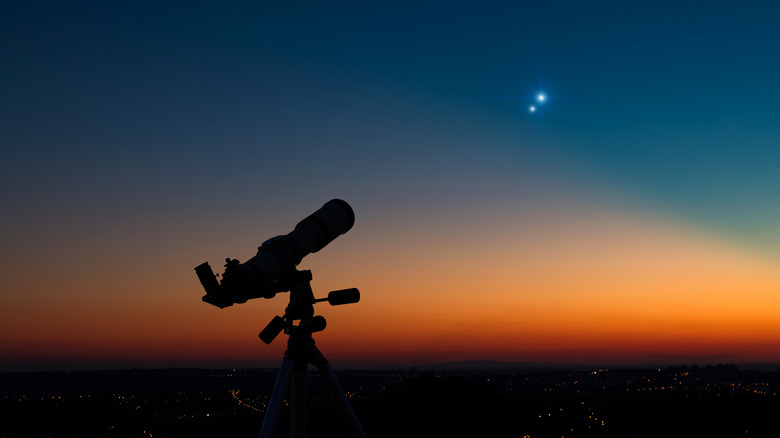The Surprising Thing That Makes Venus Different From All Other Planets
Humanity has had a special relationship with the planet Venus for as long as we've been looking up at the night sky. Before we learned about the difference between stars and planets, as Stelvision notes, Venus got the name "the morning star" because it's the first light in the sky to appear in the morning and evening. Further, it's the brightest object in the sky (after the sun and moon, of course). So beautiful is the second planet from the sun that the Romans named it for their goddess of love.
The reality, of course, is that Venus is a white-hot wasteland of noxious gases, according to NASA, and as such, is completely inhospitable to probes that land on (and stay on) the ground, such as we've sent to Mars. Human habitation is right out. Nevertheless, over the centuries we've learned quite a bit about the planet, including how it differs from the rest of the planets in the solar system in a few key ways.
Venus rotates clockwise, the opposite of the rest of the planets
Of the eight planets in the solar system (sorry, Pluto), all but two of them rotate on their axis counter-clockwise. The two that do not are Uranus, which spins on its side, and Venus, which spins clockwise. What's more, the planet's spin is excruciatingly slow compared to that of its peers; according to Scientific American, a Venusian "day" takes about 243 Earth-days, making the planet's day longer than its year.
Scientists aren't exactly sure why the planet spins so differently compared to its peers, but the prevailing theory has to do with the relationship between the planet, its atmosphere, and the sun. Specifically, French researchers Alexandre Correira and Jacques Laskar and their team determined that the sun's gravitational pull on Venus and, in particular, the planet's dense atmosphere, caused strong atmospheric tides. Those, in turn, caused the rotation to slow to a stop and then begin spinning in the opposite direction.
Of course, the French theory isn't the only one posited about Venus' odd rotation. Science Alert reports another theory — that a series of collisions by asteroids pushed Venus' spin in the other direction.

